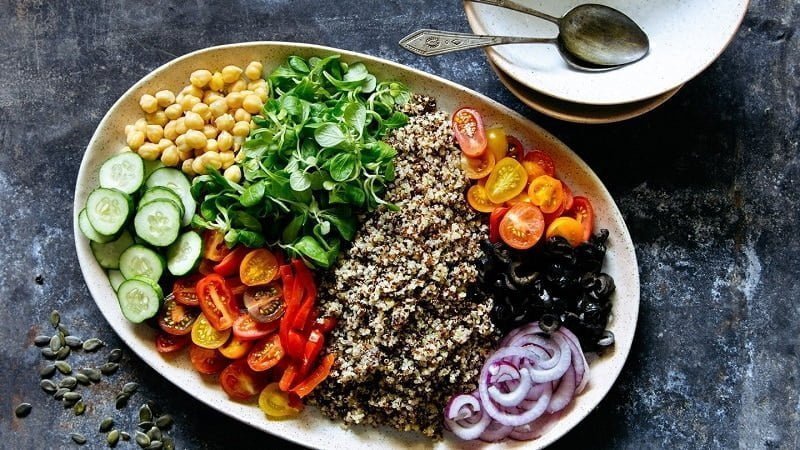What is the Mediterranean diet?
The Mediterranean diet refers to a type of diet inspired by the eating habits of people living in the vicinity of the Mediterranean Sea. This diet includes nutritious foods, such as legumes, olives, fruits, vegetables, fish, dairy products, unrefined cereals, and lots of olive oil. Research suggests that the Mediterranean diet reduces the risk of diabetes.
How does the Mediterranean diet help manage diabetes?
Research shows that people who have been following the Mediterranean diet experience better control of their blood sugar levels. This diet includes low-carbohydrate, high-protein, and low glycemic index scores. Additionally, they have added benefits like losing weight and improved heart health. It helps prevent obesity, which is one primary concern in people with type 2 diabetes.
The Mediterranean diet is also great for the heart. Cardiac problems are a common concern for individuals with diabetes. The variety of foods encompassing the Mediterranean diet reduces the risk of high blood pressure and cholesterol, both of which are diabetes-related complications.
Another benefit of this diet is its flexibility. In managing diabetes, a lifestyle change is necessary. Thankfully, shifting to a Mediterranean diet makes it easier to control blood sugar and limit the intake of foods that only raises blood glucose.
The Mediterranean diet also specializes in having a high fiber content in its wide range of foods, such as whole grains or legumes. If you haven’t known yet, any high-fiber food improves blood sugar control. It delays the digestion process, making a person feel full. As a result, it prevents individuals from craving unhealthy foods like junk snacks.
List of food in a Mediterranean diet
The following is a list of foods incorporated into the Mediterranean diet.
Types of whole grains:
- Quinoa
- Brown rice
- Buckwheat
- Barley
- Wheat berries
- Farro
- Bulgur
Types of nuts and seeds:
- Walnuts
- Almonds
- Pistachios
- Cashews
- Peanuts
- Beans
- Lentils
- Sunflower seeds
- Sesame seeds
- Peas
Types of vegetables:
- Bell peppers
- Cucumbers
- Eggplants
- Avocados
- Celery
- Carrots
- Radish
- Broccoli
- Spinach
- Lettuce
- Kale
- Collards
- Tomatoes
- Asparagus
- Artichoke
- Zucchini
- Beets
Types of fruits:
- Dates
- Grapes
- Berries
- Apples
- Pomegranates
- Figs
- Melons
- Citrus
Types of healthy fats:
- Olive oil
Types of seafood:
- Salmon
- Sardines
- Halibut
- Trout
- Mackerel
- Shrimp
- Herring
- Mussels
- Tuna
Types of dairy products:
- Low-fat cheese
- Nonfat milk
- Reduced-fat yogurt
Types of meat:
- Chicken
- Turkey
What food to avoid?
- Fast food
- Processed foods
- Soda
- Processed meats
Note: Although not entirely prohibited in the Mediterranean diet, there are foods that you should also limit consuming. It won’t hurt if you eat them once a week or a month; however, monitoring your blood sugar levels should be regular. These foods include beef, pork, lamb, butter, burgers, and sweets.
Takeaway
The Mediterranean diet has been recently named the Best Diets Overall, ranking above 39 eating styles. It is one of the reasons why trying out the Mediterranean diet can help your overall health and are available in your local market.
The Mediterranean style of diet has proven its efficiency in providing people with many health benefits. If you seek the best diet that suits your taste, money, and lifestyle, this is the perfect one. With many options under the Mediterranean diet, you will never be left out in choosing which suits your daily cravings.


